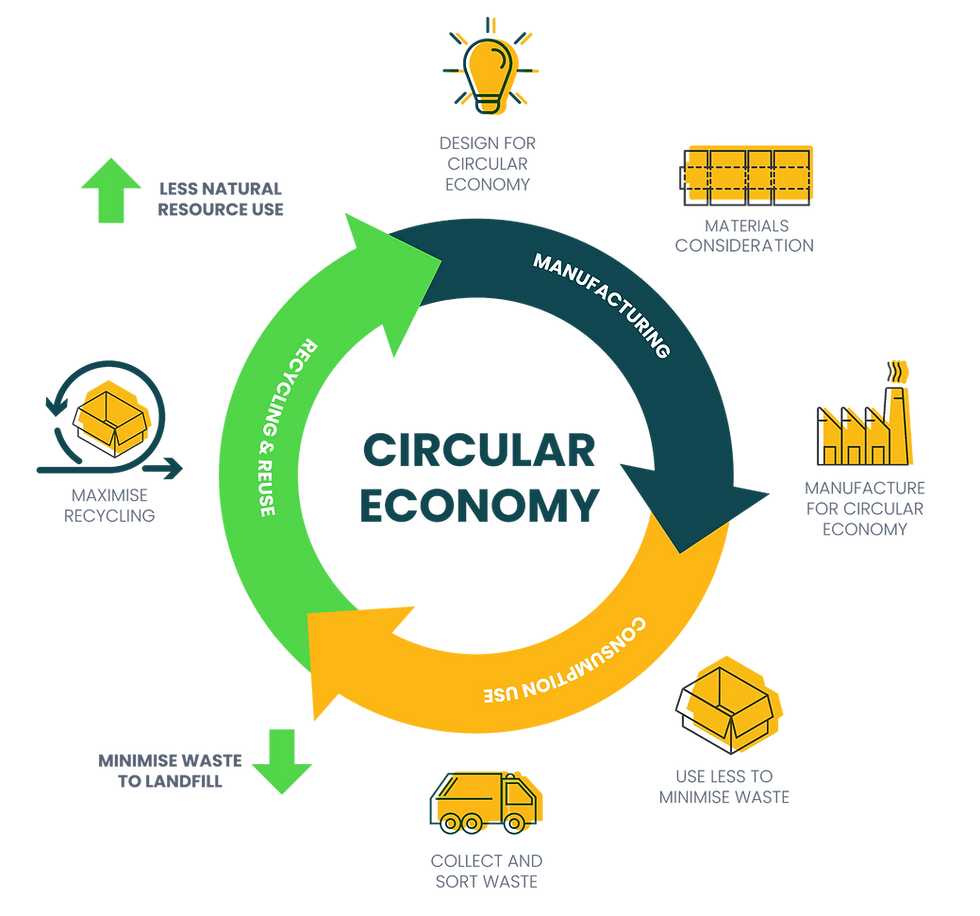Bill C-59: Cracking Down on Greenwashing and False Advertising in Canada
- Andrea Teslia

- Dec 2, 2024
- 3 min read
In June of 2024, Canada introduced Bill C-59 to amend the Competition Act, including new explicit provisions aiming to curb false advertising and greenwashing,
misleading claims about a product’s environmental benefits.
As consumers increasingly seek authentic sustainability, Bill C-59 pushes companies to be more truthful and transparent about their environmental claims. Here’s what businesses need to know.

Key Changes with Bill C-59
1. Clear Definitions: Bill C-59 sets clearer definitions for greenwashing and false advertising, making it easier to understand what qualifies as a misleading environmental claim.
2. Heavier Penalties: The bill proposes steeper fines - up to $10,000,000 for your first penalty, or 3% of the company’s global revenue, whichever is greater - for companies caught exaggerating or fabricating green claims.
3. Empowered Enforcement: The Competition Bureau will have more authority to investigate and penalize greenwashing, driving stricter oversight in advertising. The authority to investigate even extends beyond the Bureau - as of June 20, 2025 private parties can seek to bring actions against companies they believe to be using deceptive advertising – once granted permission from the Competition Tribunal.
4. Focus on Proof: Companies must now back up green claims (like “biodegradable” or “eco-friendly”) with solid evidence, making transparency in environmental marketing mandatory.
What Businesses Should Do
To stay compliant with Bill C-59, businesses should thoroughly review and validate all sustainability claims, ensuring they are accurate and backed by reliable data. Establishing internal checks is essential; creating processes to verify environmental claims, ideally with guidance from sustainability experts, can help companies avoid pitfalls. Additionally, educating marketing teams on legal requirements for environmental claims is crucial to prevent accidental greenwashing. Companies may also benefit from third-party verification, as independent audits can lend credibility to their environmental statements and strengthen consumer trust.
Why This Matters
With Bill C-59, Canada aims to build consumer trust by holding companies accountable for misleading green claims. The bill is a step toward clearer, honest communication in marketing. Companies that genuinely prioritize sustainability will thrive, while those relying on empty claims may face significant penalties. Embracing transparency is now essential for businesses that want to build strong, lasting relationships with consumers.
Global Moves Against Greenwashing

Similar to Canada’s Bill C-59, in the European Union, two key regulatory initiatives align with global efforts to combat greenwashing and foster truthful environmental marketing:
Empowering Consumers in the Green Transition (Directive 2024/825) – Effective from 2026, this directive aims to ensure that consumers are better informed about greenwashing, mandating transparent environmental claims and discouraging practices like planned obsolescence of products. Businesses must provide clear, evidence-based information to empower consumer choices aligned with green transitions.
Green Claims Directive (Proposal 2023/0085) – This proposal targeted for implementation between 2026 and 2027 focuses on substantiating environmental claims provided by businesses. It requires companies to provide verifiable proof for assertions like “eco-friendly” or “carbon-neutral,” ensuring these claims are reliable and not misleading.
These measures show global efforts from Canada and the EU in their commitment to sustainability and the circular economy, urging businesses to adopt integrity in their environmental marketing and compliance strategies.
How Greenstreets Can Help
Greenstreets provides essential support to companies in accurately assessing, measuring, and validating the packaging quantities and qualities they place on the market. Using proven methodologies and software, we can help your companies to track environmental KPIs such as the percentage of recycled content, renewable content and recyclability, among others. This data can be used to back up and validate external product/company sustainability claims. With our expertise, businesses can confidently communicate progress on ESG goals.




Great analysis on Bill C-59! It’s crucial for companies to understand how serious Canada is getting about environmental claims. If businesses don’t back their claims with solid proof, they may find themselves in trouble. Also, organizations struggling with cash flow during compliance transitions might want to apply for CERB as a temporary financial cushion. Transparency plus financial stability is key in this era of accountability.